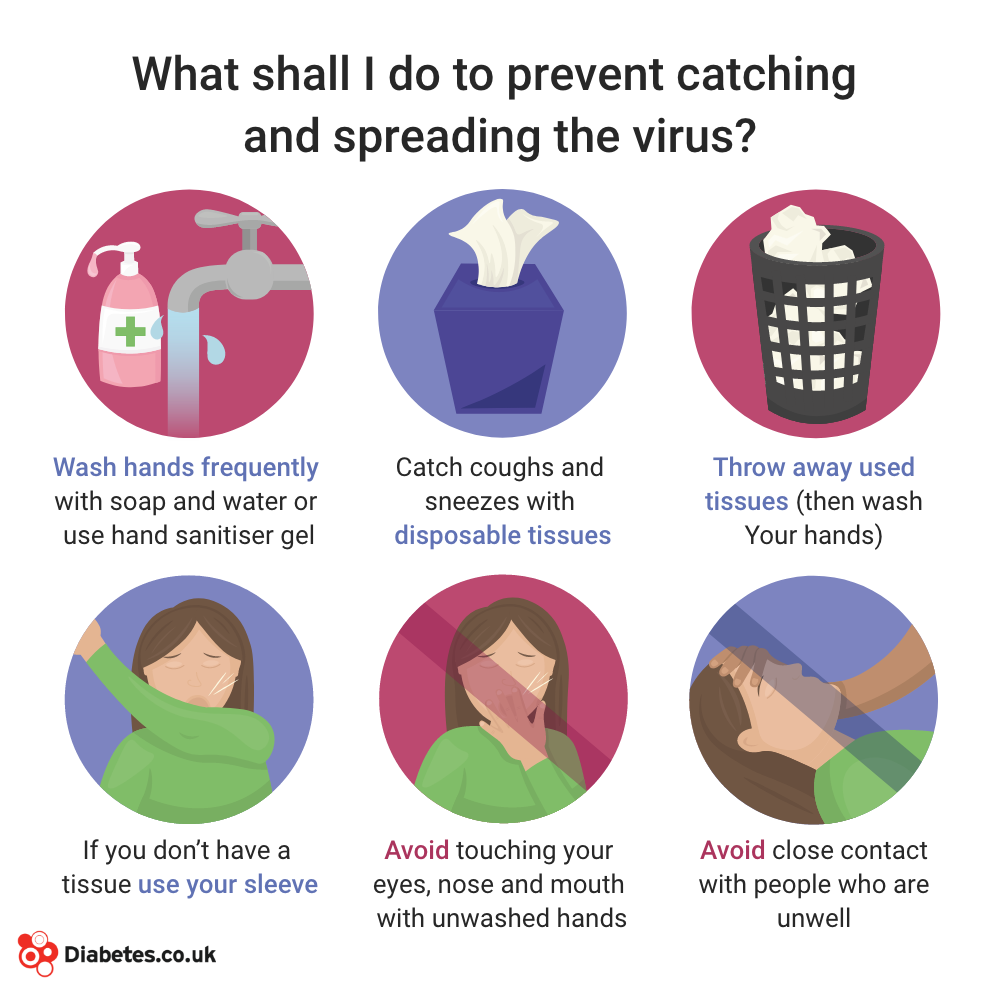People with diabetes may have a greater risk of developing COVID-19 than those who do not have type 1 or type 2, researchers have said.
Hong Kong experts say the risk of infection from coronavirus among those with diabetes is two-to-threefold, independent of other medical problems.
People with other chronic health issues, such as cardiovascular disease (CVD), are also at a higher risk of developing the life-threatening condition.
The findings have also reaffirmed earlier studies suggesting that people with diabetes are likely to be significantly more unwell should they develop COVID-19.
The good news is that with the new restrictions put in place by the government and announced Monday evening, it will now be easier to protect yourself and avoid the virus. The clear and strong message from the government is to stay at home and self-isolate.
You are only to go out for:
- Shopping for essentials
- One form of exercise a day
- Medical need/caring for a vulnerable person
- Travelling to/from work – where this is absolutely necessary and you cannot work from home

Speaking to Medscape Medical News, Dr Juliana C. N. Chan, director of the Hong Kong Institute of Diabetes and Obesity at the Chinese University of Hong Kong, said: “The message we want to emphasise is that emergencies unmask vulnerabilities in diabetes. The old and the sick are the most vulnerable.
“I don’t think it’s an overstatement to say that people with diabetes are at higher risk of developing COVID-19, because the data are suggestive.”
At the moment there are only 70 confirmed coronavirus cases in Hong Kong and two deaths. The first mortality was a 39-year-old man with diabetes.
Dr Chan added: “Our message is to ask people with diabetes to do things early in order to protect themselves and reduce their risk of having problems if anything happens.”
In the UK, the government is advising people to be “particularly stringent” in following social distancing measures.
It was announced that under new restrictions, people should only leave their homes for a few, specific reasons. Otherwise, everyone should stay indoors at home.
Dr Preeti N. Malani, an infectious disease specialist and chief health officer at the University of Michigan Medical School Ann Arbor, said: “Cases that are identified tend to be in patients that have more severe illness, compared to younger, healthier individuals who just stay home and don’t seek medical care.
“This is also the case with individuals who are sick enough to be hospitalised. There are more people with more chronic conditions, including diabetes [among hospitalised individuals].
“In general, diabetes can be a marker of other chronic health conditions like heart disease as well as obesity, which might contribute to the increased risk of infection.”
Chan and other experts are therefore calling for diabetes patients, those with CVD, and patients with other chronic medical conditions to be extra vigilant in their efforts to avoid contact with the virus, although they also note that individual responses vary greatly.
In past infectious disease outbreaks, including severe acute respiratory syndrome (SARS) and H1N1 flu, people with diabetes were at greater risk for severe illness and death, noted Chan, although she cautioned that longer-term research will give a much clearer picture.




